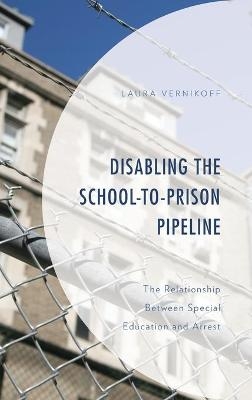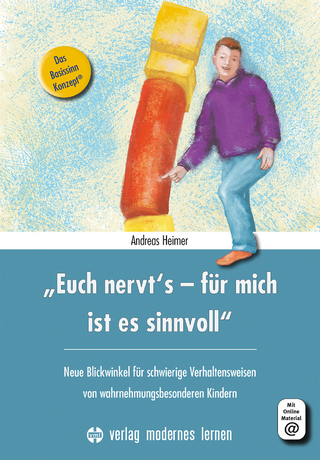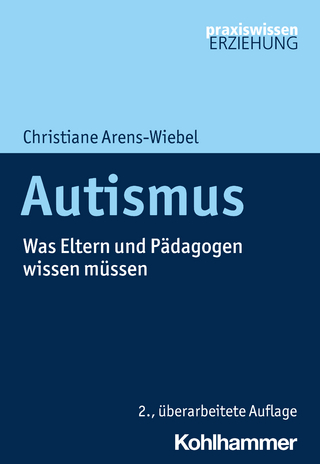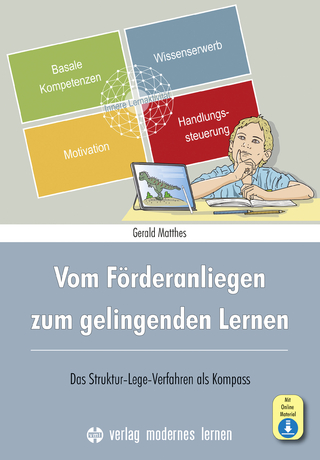
Disabling the School-to-Prison Pipeline
The Relationship Between Special Education and Arrest
Seiten
2021
Lexington Books (Verlag)
978-1-7936-2417-8 (ISBN)
Lexington Books (Verlag)
978-1-7936-2417-8 (ISBN)
Disabling the School-to-Prison Pipeline interrogates how the school-to-prison pipeline operates for young people receiving special education services. Interviews with those directly affected suggest new ways of thinking about the problems facing special education.
Young people who have received special education services in the United States are vastly overrepresented in juvenile and adult criminal justice systems relative to their numbers in the general population. Although much existing research blames individual kids for getting arrested, school-level policies and practices affect a variety of student outcomes, including involvement with the justice system. These school-level policies and practices can—and should—be altered by teachers, administrators, and policy makers to reduce the number of young people getting arrested.
Disabling the School-to-Prison Pipeline uses administrative data from New York City public schools and interviews with young people who have received special education services in NYC public schools and been arrested to better understand how schools can help or harm students receiving special education services. Schools cannot fix all problems associated with the criminal justice system in the United States; however, we can certainly expect schools not to make existing problems worse. This book identifies school-level policies and practices that may lead to negative outcomes for students, such as getting arrested, and suggests alternatives.
Young people who have received special education services in the United States are vastly overrepresented in juvenile and adult criminal justice systems relative to their numbers in the general population. Although much existing research blames individual kids for getting arrested, school-level policies and practices affect a variety of student outcomes, including involvement with the justice system. These school-level policies and practices can—and should—be altered by teachers, administrators, and policy makers to reduce the number of young people getting arrested.
Disabling the School-to-Prison Pipeline uses administrative data from New York City public schools and interviews with young people who have received special education services in NYC public schools and been arrested to better understand how schools can help or harm students receiving special education services. Schools cannot fix all problems associated with the criminal justice system in the United States; however, we can certainly expect schools not to make existing problems worse. This book identifies school-level policies and practices that may lead to negative outcomes for students, such as getting arrested, and suggests alternatives.
Laura Vernikoff is assistant professor of special education at Touro College Graduate School of Education.
1 – Students Whom Schools Do Not Fit: The Brief History of Common Schooling in the United States
2 – The School-to-Prison Pipeline and Dis/ability Today
3 – Special Education and the School-to-Prison Pipeline in New York City: An Overview
4 – Young People Talk About and Around Special Educators and Peers with IEPs
5 – Moving From the General to the Particular and Back: Generalizability and Variability in the School-to-Prison Pipeline
6 – Diverting the School-to-Prison Pipeline
| Erscheinungsdatum | 10.05.2021 |
|---|---|
| Reihe/Serie | Critical Issues in Disabilities and Education |
| Verlagsort | Lanham, MD |
| Sprache | englisch |
| Maße | 164 x 227 mm |
| Gewicht | 417 g |
| Themenwelt | Sozialwissenschaften ► Pädagogik ► Sonder-, Heil- und Förderpädagogik |
| ISBN-10 | 1-7936-2417-8 / 1793624178 |
| ISBN-13 | 978-1-7936-2417-8 / 9781793624178 |
| Zustand | Neuware |
| Haben Sie eine Frage zum Produkt? |
Mehr entdecken
aus dem Bereich
aus dem Bereich
das Struktur-Lege-Verfahren als Kompass
Buch | Softcover (2024)
modernes lernen (Verlag)
23,95 €


